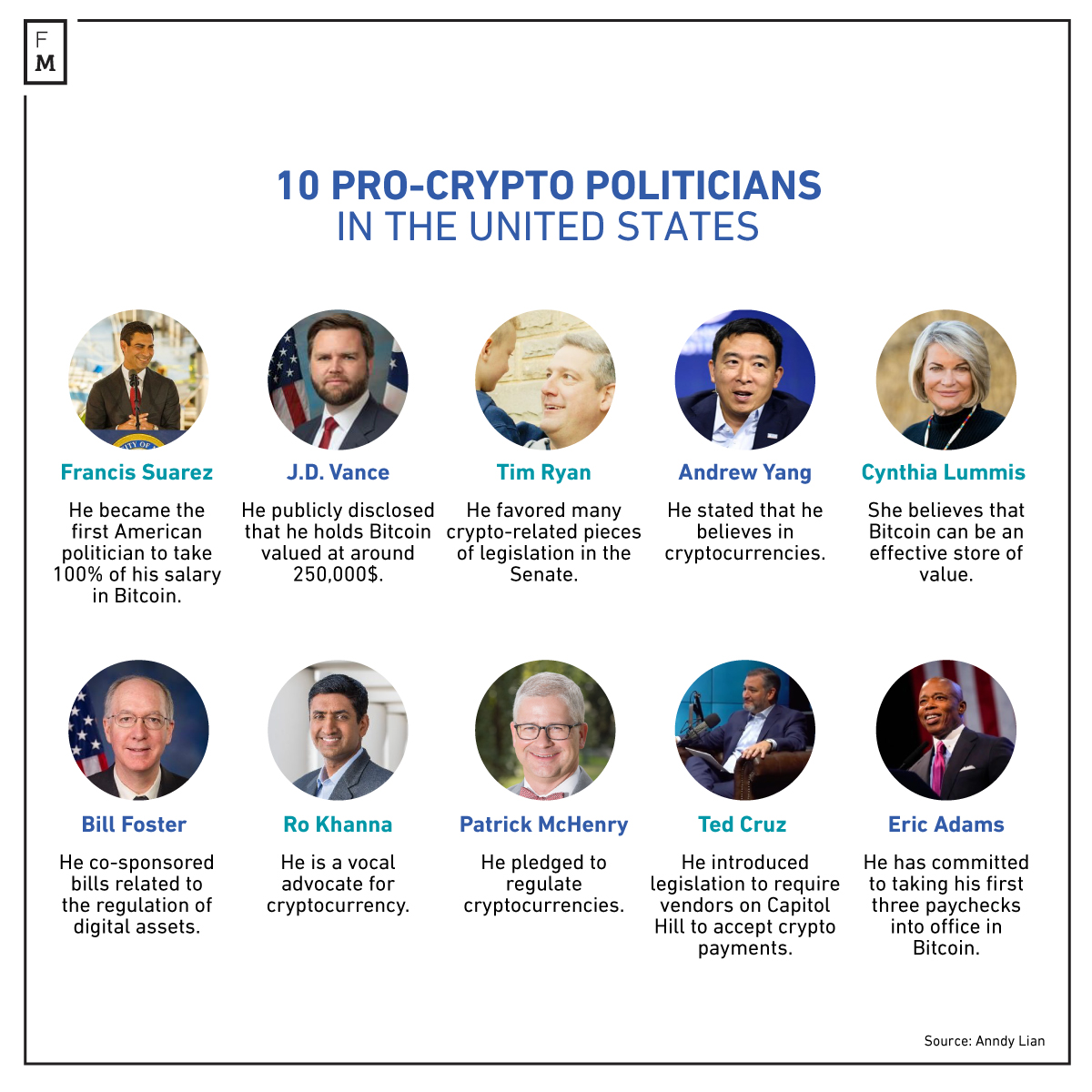It started as a joke. A picture of a Shiba Inu dog, eyes wide with a mischievous glee, plastered across the internet with the word “Doge” slapped underneath. Little did anyone know that this digital canine would become the unlikely mascot of a financial revolution.
We’re in the age of meme coins, where internet humor collides with the very serious business of making (and losing) money. Fueled by online communities, amplified by social media frenzy, and propelled by the eternal human desire for making a quick buck, meme coins have exploded from niche curiosity to mainstream phenomenon.
But behind the laughs and the lambos (or lack thereof), serious questions linger: Are meme coins a legitimate investment opportunity, a harbinger of a decentralized financial future, or a speculative bubble destined to pop?
To navigate this chaotic, exhilarating landscape, we sat down with Anndy Lian, intergovernmental blockchain expert and author who’s witnessed the evolution of crypto from the front row. And Himanshu Maradiya, chairman and founder of the CIFDAQ blockchain ecosystem.
Economic Drivers Behind the Meteoric Rise
The fundamental economic drivers behind the meteoric rise of meme coins and their distinctions from traditional asset classes are subject to analysis. Lian attributes this rise of meme coins “to the power of community-driven momentum.” He says: “Meme coins are often created and propelled by online communities, with no institutional backing or venture capital support.”
Maradiya thinks meme coins have surged in popularity due to a “confluence of factors.” Social media platforms have amplified their visibility, with influencers playing a pivotal role in driving market sentiment.
The allure of quick profits has attracted a broad investor base to meme coins, fueling speculation and price volatility. Moreover, the low barrier to entry and a strong sense of community surrounding many meme coins have contributed to their rapid growth, according to experts.
The Social Media Amplifier: Hype, Influencers, and Herd Mentality
Given the emphasis placed on social media, influencers, and community sentiment in propelling meme coin popularity, it is imperative to examine their precise influence on asset valuations and the implications for investors.
Maradiya cited Dogecoin as an example, noting that its “rise was significantly influenced by its meme culture and community-driven hype, fueled by frequent mentions and endorsements on social media.” The CEO underlined the role of “influential figures, like Elon Musk,” making “high-profile endorsements, which can cause substantial price surges.”
Moreover, he highlighted that “influencers, with their extensive follower bases, contribute to this phenomenon by either supporting or disparaging meme coins, directly impacting their market performance,” and the impact of “a highly engaged community [that] can create a self-sustaining cycle of enthusiasm, driving demand and increasing the meme coin’s value.”
Lian offered a first-hand account of the volatile nature of meme coin markets. His experience with the rapid surge of the Moni meme coin because he shared a post about it on X and the “strong following among South Korean communities” of the project underscored the immense influence of online platforms and communities on these digital assets.
Lian’s observations highlighted the unpredictable nature of meme coin prices, emphasizing the role of social media sentiment and influencer endorsements in driving market fluctuations.
Navigating the Regulatory Maze: A Call for Investor Protection
Given the significant influence of social media and influencers on the meme coin market, a robust regulatory framework is essential to protect investors.
For Lian, meme coins “aren’t some exotic asset class that requires a whole new set of rules,” but rather “an integral part of the broader crypto market, and our existing regulatory frameworks should be applied consistently across the board.” He suggested that instead of “putting meme coins in a silo, regulators should focus on schooling investors on the unique quirks and risks that come with these community-driven cryptocurrencies.”
Maradiya advocated “evolving regulatory frameworks and investor protection measures to address the challenges posed by meme coins involves enhancing transparency, regulating marketing practices, improving investor education, strengthening anti-manipulation measures, adopting adaptive approaches, and fostering global coordination. These steps are essential for safeguarding investors and maintaining market integrity in the face of the unique dynamics of the meme coin market.”
Investing in Meme Coins: Proceed With Caution
Investing in meme coins presents a unique set of challenges and opportunities for investors. On one hand, the potential for significant returns, driven by factors such as viral trends and community enthusiasm, can be alluring. On the other, the high volatility and speculative nature of these assets necessitate a cautious approach.
“A genuine community is a sign of a healthy, sustainable project,” Lian explained. “It means that people are invested in the project’s success, not just financially, but emotionally and intellectually as well.” Conversely, projects with fake or manufactured communities are often driven by speculation and FOMO, increasing the risk for investors, the blockchain expert added.
To differentiate between promising meme coin projects and those with high speculative risk, Maradiya suggested a structured evaluation process. Investors should assess a project’s purpose and utility, seeking out those with real-world applications beyond mere novelty.
A strong, experienced development team is crucial, as is a thorough understanding of the token’s economics. Monitoring market sentiment, social media trends, and influencer activity can provide valuable insights. Adherence to regulations and transparency are essential for mitigating risks. Learning from both successful and failed projects can offer valuable lessons.
Ultimately, thorough research and risk assessment are indispensable for making informed investment decisions. By combining these factors with Lian’s emphasis on community, investors can significantly enhance their ability to identify promising meme coin projects.
The Blockchain Advantage: Building a More Transparent and Secure Future?
As meme coins continue to captivate the public’s imagination, concerns about transparency and investor protection grow alongside their popularity. Blockchain technology, the bedrock of cryptocurrencies, offers a potential solution to these challenges. By exploring the ways blockchain can enhance the security and openness of meme coin platforms, we can better understand how to mitigate risks for investors while fostering innovation in this burgeoning market.
Lian and Maradiya both emphasized the transformative potential of blockchain technology in enhancing the transparency and security of meme coin platforms.
Lian highlighted the role of blockchain’s decentralized and immutable ledger in preventing fraudulent activities, stating: “Blockchain tech can be a game-changer for meme coin platforms, making them more transparent and secure for investors.”
Maradiya expanded on this by emphasizing how blockchains can address the growing challenges faced by meme coin investors, including legitimacy, security, and regulatory compliance.
Beyond these core benefits, the two experts also identified additional advantages of blockchain integration. Smart contracts can streamline platform operations and DeFi protocols can provide access to secure financial instruments, further mitigating risks for investors.
Final Thoughts
The meme coin craze is a testament to the power of online communities, the allure of quick riches, and the evolving nature of finance in the digital age. While offering potential for innovation, it also presents significant risks for investors.
By fostering greater transparency, implementing appropriate regulations, and prioritizing investor education, the meme coin market can move towards a more sustainable and responsible future – one where community-driven innovation and investor protection can coexist.
To read the full interviews and gain deeper insights into the future of meme coins, check out the links below.
Anndy Lian’s interview
Himanshu Maradiya’s interview
About the Experts
Himanshu Maradiya is a seasoned entrepreneur and blockchain visionary with a proven track record in real estate, finance, and investment. As the founder of CIFDAQ, he is driving innovation in the trading industry by leveraging blockchain technology to create a unified, secure, and accessible platform for diverse asset classes. With a deep understanding of market dynamics and a passion for democratizing finance, Maradiya is reshaping the investment landscape.
Anndy Lian is a global blockchain strategist and thought leader. As an early adopter and investor, he has played pivotal roles in shaping the industry through advisory work with governments, corporations, and international organizations. His expertise is reflected in his books, “Blockchain Revolution 2030” and “NFT: From Zero to Hero.” Currently leading digital transformation in Mongolia, Lian’s impact spans from cryptocurrency exchanges to automotive giants.
Source: https://magazine.shib.io/article/66bcd2bde30f660001f07c59


Anndy Lian is an early blockchain adopter and experienced serial entrepreneur who is known for his work in the government sector. He is a best selling book author- “NFT: From Zero to Hero” and “Blockchain Revolution 2030”.
Currently, he is appointed as the Chief Digital Advisor at Mongolia Productivity Organization, championing national digitization. Prior to his current appointments, he was the Chairman of BigONE Exchange, a global top 30 ranked crypto spot exchange and was also the Advisory Board Member for Hyundai DAC, the blockchain arm of South Korea’s largest car manufacturer Hyundai Motor Group. Lian played a pivotal role as the Blockchain Advisor for Asian Productivity Organisation (APO), an intergovernmental organization committed to improving productivity in the Asia-Pacific region.
An avid supporter of incubating start-ups, Anndy has also been a private investor for the past eight years. With a growth investment mindset, Anndy strategically demonstrates this in the companies he chooses to be involved with. He believes that what he is doing through blockchain technology currently will revolutionise and redefine traditional businesses. He also believes that the blockchain industry has to be “redecentralised”.





